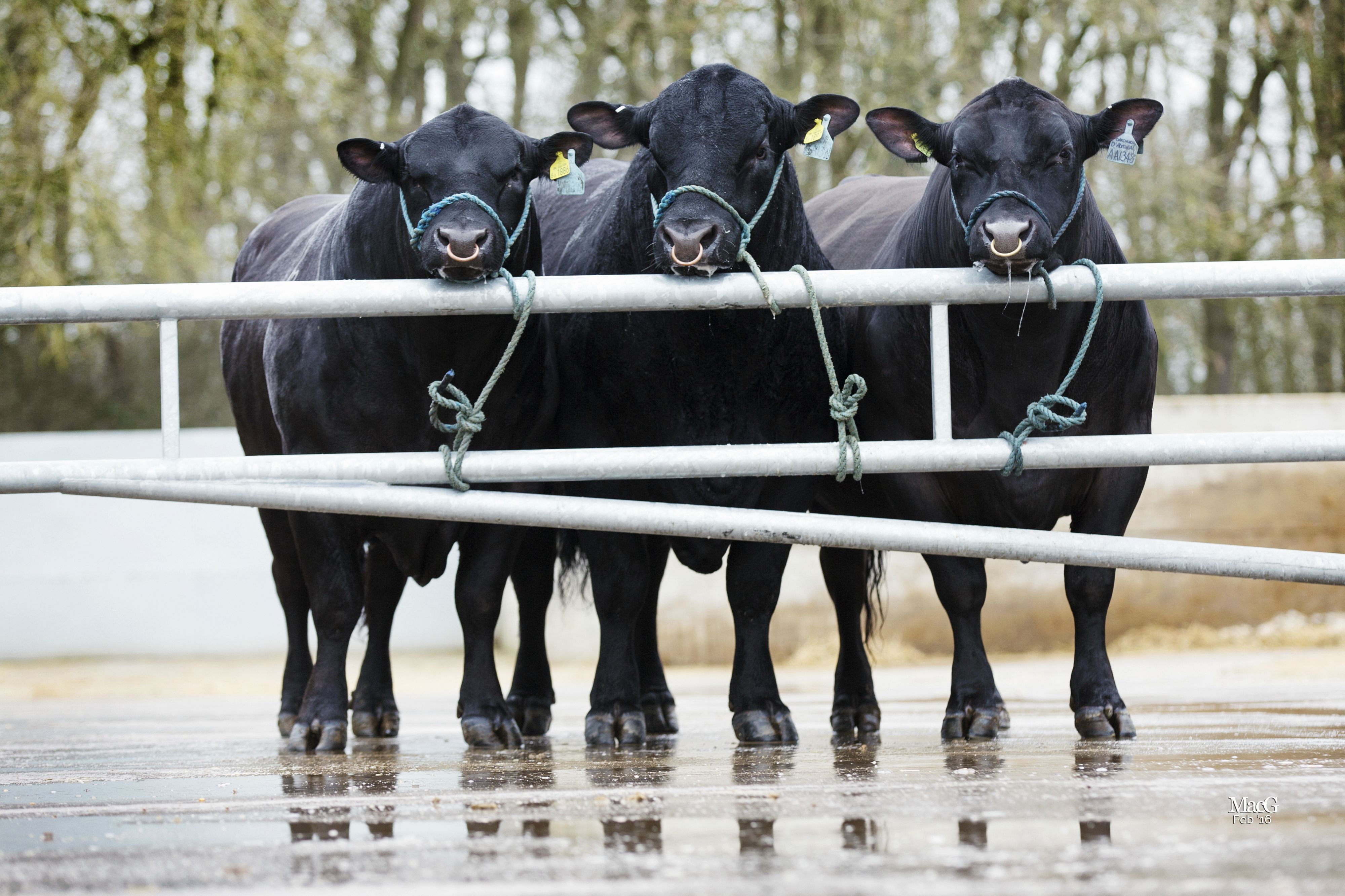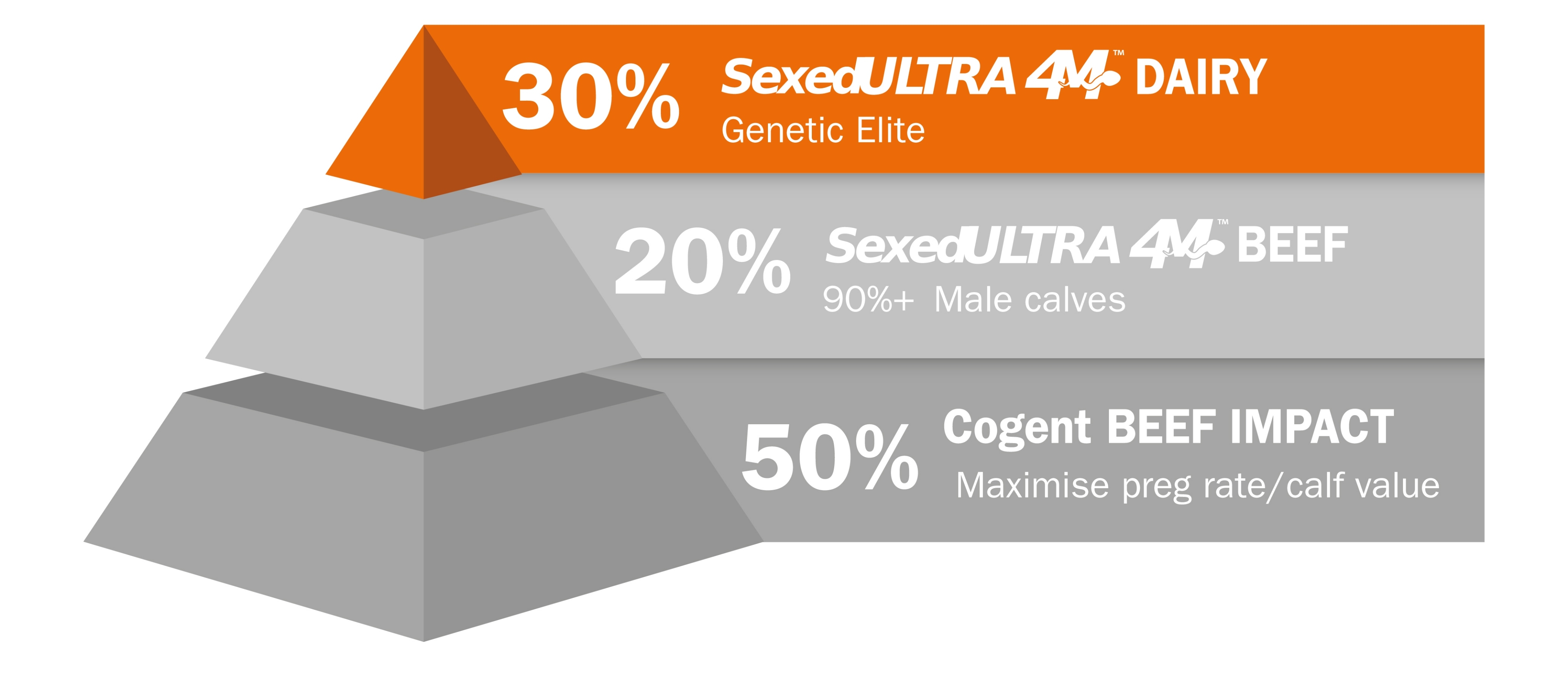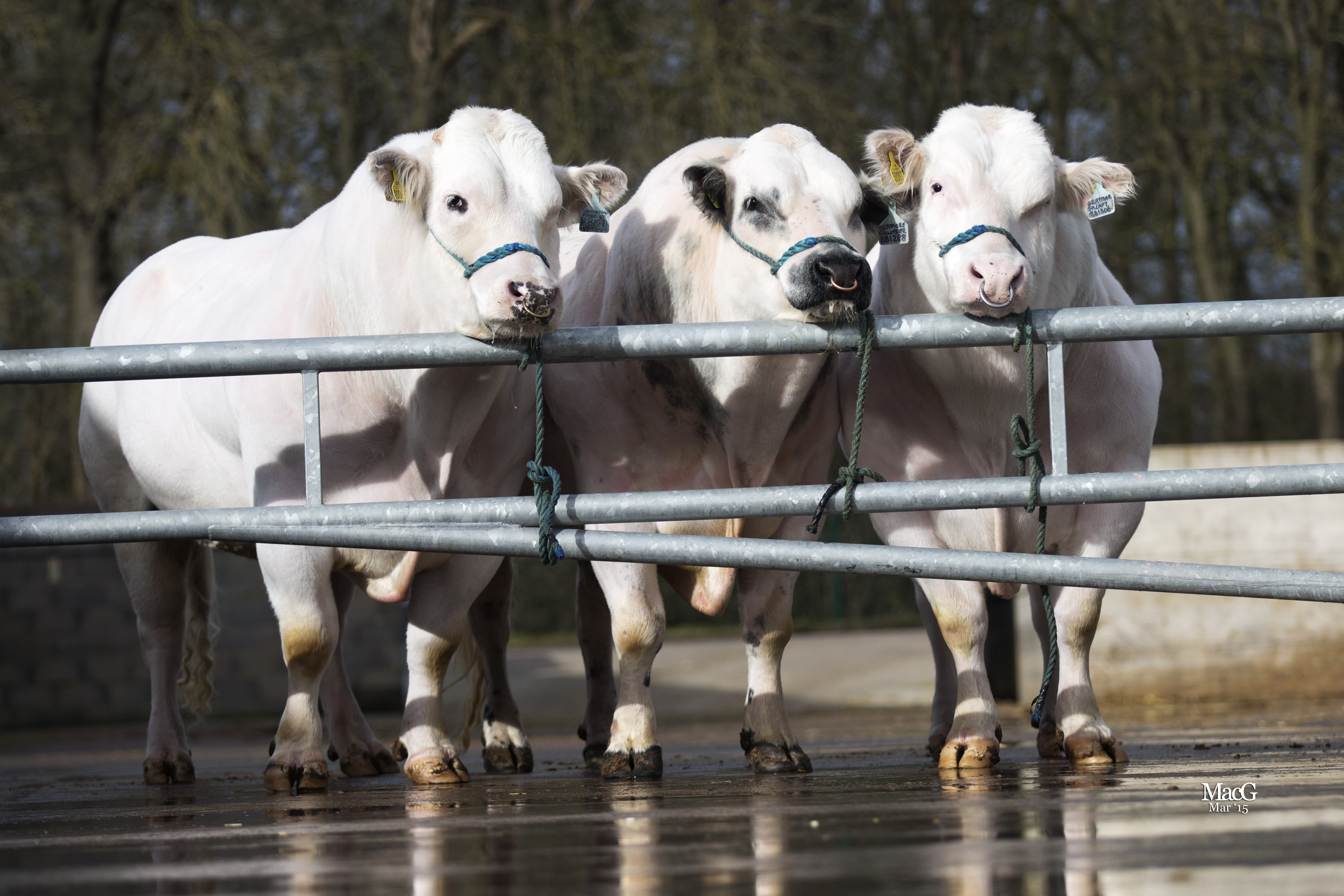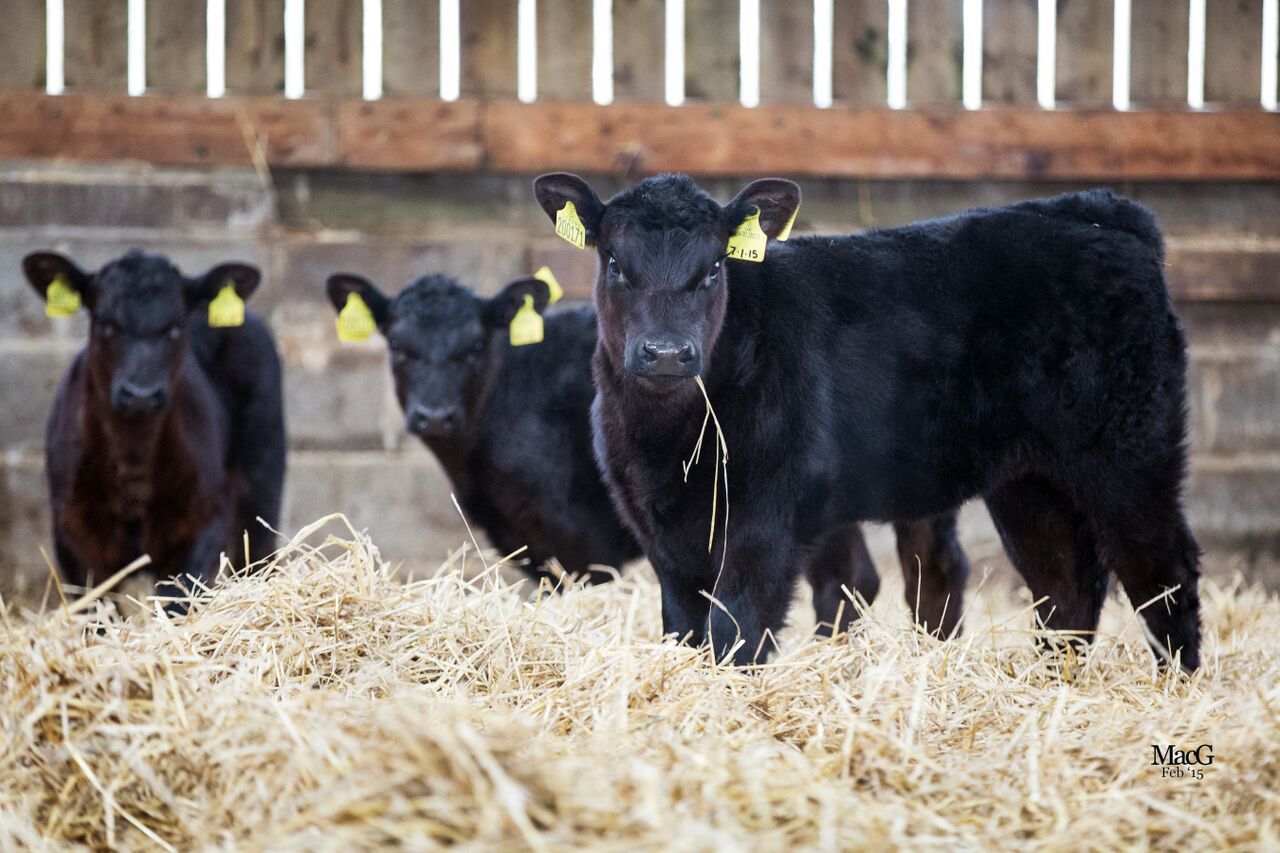Beef from dairy herds is becoming a vital source of income for dairy units, which makes the development of male beef sexed semen an exciting step forward.
"I think it is a huge step forward. The industry is growing massively in terms of integration." - Boomer Birch (Beef Programme Manager)
Sexed male beef semen, that can achieve conception rates which match those of conventional, could be a ‘game-changer’ for dairy farmers looking to make the most of everything produced on-farm. In recent months, many farmers have been embracing advances in semen sexing technology which have enabled the development of SexedULTRA 4M. With double the number of semen cells per straw, 4M has put an end to the reduced conception rates often reported from using traditional sexed products. Today, farmers can expect conception rates much closer to those of conventional. Following on from the success of female dairy SexedULTRA 4M, Cogent has transferred the technology over to male sexed beef semen; SexedULTRA 4M Beef.

Efficacy
This has improved the efficacy of Cogent’s sexed beef product, which is the only one
of its kind produced in the UK, says the company. This investment reflects a marked industry-wide shift in attitude towards beef from the dairy herd. In the past, beef was largely viewed as a by-product of dairying, with little thought given to the type of beef sires used. However, today the development of integrated supply chains mean beef from dairy units is becoming an increasingly important part of farm businesses. Growing dairy market volatility also means income from dairy beef is an increasingly valuable source of income.
Game-changer
With this in mind, Cogent’s beef programme manager Boomer Birch believes the development of male sexed semen is a ‘game-changer’. He says: “This is massive. I think it is a huge step forward. The industry is growing massively in terms of integration. Within this, male animals – whether these are entire bulls or steers – are more efficient to finish, either extensively or intensively, than heifers. It makes the beef supply chain more efficient.”
By targeted use of male beef sexed semen, farmers can reduce the number of female beef calves produced, thus increasing their market value and overall farm returns.
Mr Birch says: “The extra value you get from a male beef calf, whether that is native or continental, is significant. Probably, on average, a £100 difference by producing a male beef calf, rather than a female. But it can be as much as £250, depending on age and breed.” Improved conception rates from SexedULTRA 4M Beef also make the added cost of the
product justifiable.
How should male sexed semen be used?
Mr Birch believes breeding strategies which revolve around targeted use of sexed female
dairy semen and male sexed beef semen are set to rapidly become ‘the norm of the future’.
This stems around understanding the genetic value of females in the herd. He advises genomically testing all heifers and first and second lactation animals. This information can then be used to make breeding decisions (see graphic below).

1. Use female sexed dairy semen on the top 30% of females
- Female sexed dairy semen (SexedULTRA 4M Dairy) should be used on your best females. These will usually be most of your heifers, together with the most genetically interesting first and second lactation cows.
- This strategy will produce replacement female of high genetic value.
2. Use male sexed beef semen on the middle 20% of females
- Male sexed beef semen (SexedULTRA 4M Beef) should be used on females of less genetic interest, that are still highly fertile.
- These will usually be first or second lactation cows which are below average for milk and profitable lifetime index, but positive for fertility index.
3. Use conventional beef semen on the bottom 50%
- Conventional beef semen (Cogent Beef Impact bulls) can be used on animals with the lowest genetic value. These will usually be third to sixth lactation animals with lower fertility indexes.

How do you get the best results from sexed semen?
As with all sexed semen products, to get the best conception rates it is best to only serve high fertile animals. All the basics of good breeding management also apply, such as:
- Thawing semen at 37 deg C for 40 seconds.
- Adhering to best practice semen handling practices
- Adopting good AI technique
- Ensuring animals are on a rising plane of nutrition with adequate mineral supplements.
What bulls are available as SexedULTRA 4M Beef?
Cogent currently offers a variety of different breeds in SexedULTRA 4M Beef, including Hereford, Simmental, Limousin, Aberdeen-Angus and British Blue. Only proven beef bulls from Cogent’s long-running sire-testing programme, Beef Visions, will be sexed.
How are beef bulls selected for dairy farmers?
Cogent has been investing in its beef sire selection programme to identify quality beef bulls that specifically meet the needs of dairy farmers. This has included the development of the financial index, Cogent Beef Impact. This is made up of Ease of Management Impact (£EMI) and Market Value Impact (£MVI):
- £EMI includes calving ease, gestation length and calf vigour. A high £EMI bull will produce
easy calvings and short gestations. - £MVI includes calf quality and birthweight. A high £MVI will have a high market value and
will take less time to reach optimum weight. Farmers can then select sires based on their specific requirements. All Beef Impact bulls have these figures behind them and only the most suitable bulls will be sexed.

Case Study: Easom & Sons
TARGETED use of male sexed beef semen has helped the Easom family maximise the value of their calf crop at Broom House Farm, Alfreton.
Having traditionally finished all Holstein bull calves produced from their black and white herd, they decided to use SexedULTRA 4M British Blue semen on the lowest genetic merit females.
By doing so, they have increased the value of the entire beef rearing unit.
David Easom says: “The higher cost of semen is justified on the beef unit, because we have found a British Blue bull at 12 months achieves £250 more than a Holstein bull at the same age.
“We have not changed how we rear animals, we have just changed the breed we use.”
For more information on Male Sexed Beef speak to your local Cogent Breeding Advisor or call 0800 783 7258.